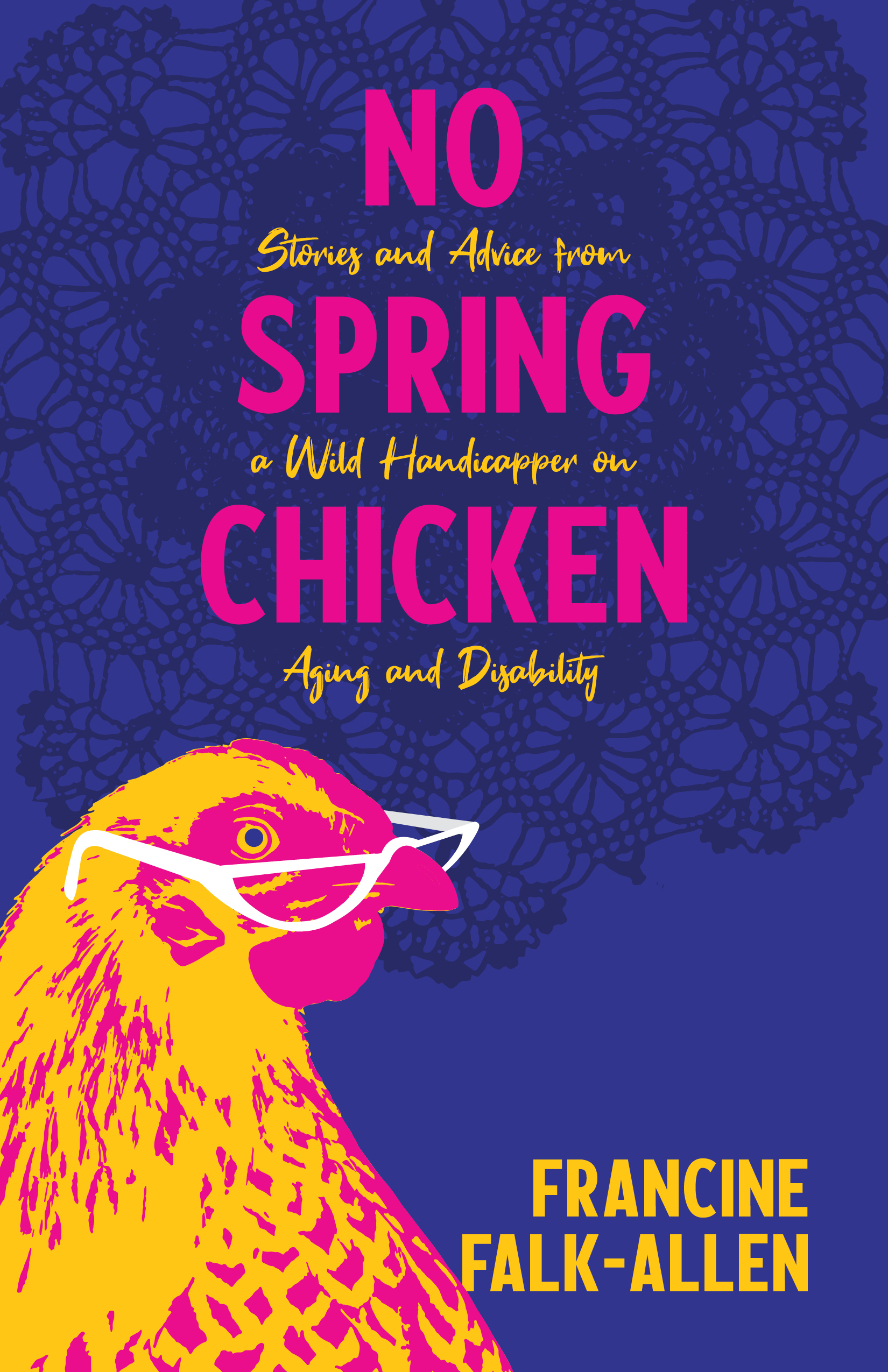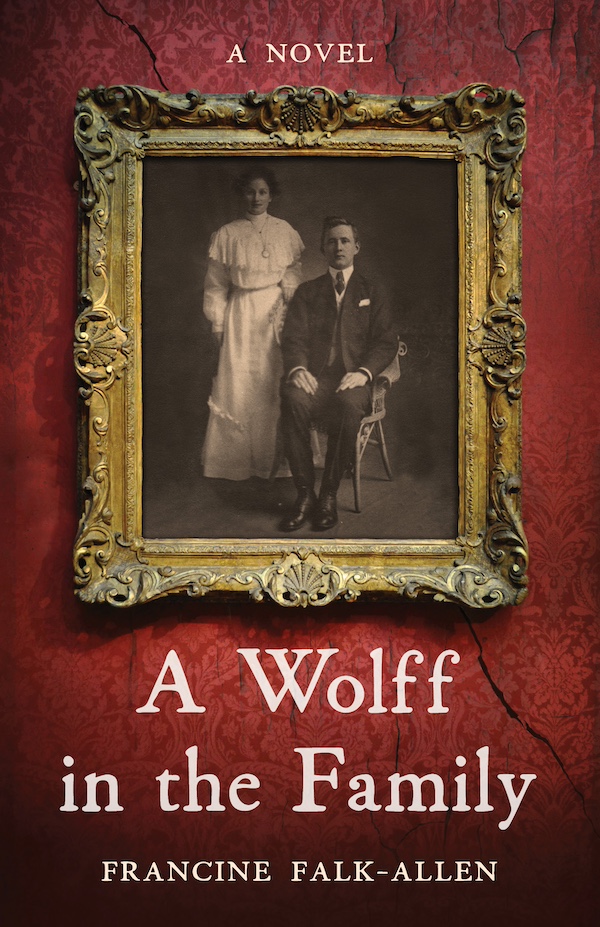Francine Falk-Allen was born in Los Angeles and has lived nearly all of her life in Northern California. A former art major with a BA in managerial accounting who ran her own business for thirty-three years, she has always craved creative outlets. This has taken the form of singing and recording with various groups, painting, and writing songs, poetry, and essays, some of which have been published. Falk-Allen facilitates Polio Survivors of Marin County and Just Write Marin County (a Meetup writing group), and is a volunteer member of the San Rafael City ADA Accessibility Committee. Her first book, Not a Poster Child: Living Well with a Disability: A Memoir has been included on several national outlet’ss’ lists of best books of 2018, including Kirkus Reviews, BuzzFeed, and PopSugar, and received a gold medal from Living Now Book Awards for Inspiring Memoir – Female and a silver medal from Sarton Women’s Book Awards for memoir. She was also named one of “25 Women Making a Difference in 2019” by Conversations Magazine. She loves the outdoors, gardening, pool exercise, her sweet, peculiar old cat, spending time with her husband and good friends, strong British tea, and a little champagne now and then. Francine lives in San Rafael, California.
about NOT A POSTER CHILD

Polio is back in the news. Almost forgotten for decades in the US, it has been brought back into the spotlight by the anti-vaxxer movement―but for millions around the world, especially those who have residual or late effects of polio, this virus has never been old news.
Francine Falk-Allen was only three years old when she contracted polio and temporarily lost the ability to stand and walk. Here, she tells the story of how a toddler learned grown-up lessons too soon; a schoolgirl tried her best to be a “normie,” on into young adulthood; and a woman finally found her balance, physically and spiritually. In lucid, dryly humorous prose, she also explores how her disability has affected her choices in living a fulfilling (and amusing) life in every area―relationships, career, religion (or not), athleticism, artistic expression, and aging, to name a few. A clear-eyed examination of living with a handicap, Not a Poster Child is one woman’s story of finding her way to a balanced life―one with a little cheekiness and a lot of joy.
about NO SPRING CHICKEN

People who are disabled or handicapped and/or beginning to have physical difficulties as they grow older have much to contend with. It can be hard for spouses, children, and friends to adapt to the changes people go through as they age—to drop expectations and meet their loved ones where they are. And often the advice well-meaning but clueless folks give is just unrealistic and doesn’t help solve problems.
In No Spring Chicken, Francine Falk-Allen—a polio survivor who knows a thing or two about living with a disability—offers her own take on how to navigate the complications aging brings with equanimity (and a sense of humor). The handbook is divided into three sections: Part I is a jaunt through accessible travel pleasures and pitfalls in several parts of the world; Part II addresses the adaptation people who love a handicapped or aging person could make in order to have a lighter, more mutually rewarding relationship with him or her, as well as advice for physically challenged and aging persons themselves regarding self-care, exercise, pain management, healthcare, and more; and Part III discusses the challenges, rewards and logistics of engaging with groups of people who share similar issues.
about A WOLFF IN THE FAMILY

Frank and Naomi Wolff were happily married in 1908. She was a Kansas farmgirl; he was a railroad engineer. She was excited to embark upon her role as wife and mother with a hardworking man, and in their early years together they made a life in thriving Ogden, Utah. Despite Frank's almost-constant absence for his job riding the rails, which left pretty Naomi to raise their children virtually alone, their romantic relationship begat fourteen offspring in eighteen years. Like other lower-middle-class women, Naomi's life was consumed with caring for her brood, who became helpers as soon as they could fold a diaper—and who, by and by, were required to attend the school of hard knocks as much as public schools. Affection and struggle endured within the family, crowded into a humble house. Despite the respite of occasional family train trips across the plains, the marriage ultimately faced exceptional challenges, just before the Depression era began.
What scandals led Frank Wolff to abandon his younger children at an orphanage far from home? And why did his elder children keep this a secret for eighty years?
Based on true family history, A Wolff in the Family is a gripping saga permeated with misogyny, prejudice, and passion . . . for fans of Kristin Hannah's The Four Winds.


